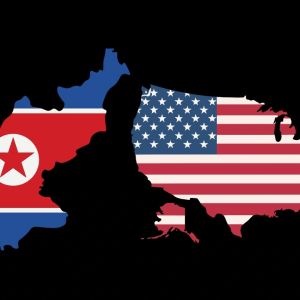U.S. Treasury seeks to block Huione Group over North Korea laundering ties
3 min read
The U.S. Department of the Treasury has proposed a federal rule to sever the Cambodia-based Huione Group’s access to the U.S. financial system, citing the company’s alleged involvement in laundering billions of dollars linked to North Korean cybercrime and online fraud schemes. According to the Treasury’s Financial Crimes Enforcement Network (FinCEN), Huione and its affiliates have facilitated significant illicit transactions since August 2021. These transactions are connected to online romance and investment scams. The proposed action will make it more difficult for cybercriminals such as Lazarus Group to launder their illicit profits. Notably, a 30-day public comment period must be completed before the proposed rule becomes operative. Huione Group becomes a preferred marketplace for criminals to conduct money laundering operations U.S. Treasury Secretary Scott Bessent said in a statement on May 1 that malicious cybercriminals such as Lazarus Group had stolen billions of dollars from regular Americans and that Huione Group has become their preferred marketplace. These remarks followed investigations that the Huione Group had established a network of companies, including the cryptocurrency exchange Huione Crypto, the payment service platform Huione Pay PLC , and the online marketplace Haowang Guarantee, which sold illegal goods and services. Moreover, FinCEN revealed that from August 2021 to January 2025, Huione Group allegedly laundered at least $4 billion in illicit proceeds, including over $36 million from cryptocurrency pig slaughtering schemes. According to the Treasury, at least $37 million worth of the cryptocurrency that was laundered was connected to North Korea’s “cyber heists.” One notable case involved the laundering of $35 million from the $305 million hack of Japan’s DMM Bitcoin exchange through Huione Guarantee, a subsidiary of Huione Group. Victims of these scams have suffered significant financial losses. Beth Hyland, one of the pig butchering victims, said she had been the victim of a Tinder scammer in 2024 who kept “manipulating and gaslighting” her until she sent over a significant amount through Bitcoin ATMs. “We started chatting and hit it off right away. We were going to meet. He said he was a freelance manager for a construction company,” Hyland recalled, explaining how the Nigeria-based con artist kept claiming he was locked out of his bank accounts and was hard up for funds to pay his workers. The Treasury said that Haowang Guarantee had turned Huione Group into a “one-stop shop” for criminals to launder cryptocurrency they had acquired through illegal means and then exchange it for fiat currency. Furthermore, Huione Pay, a company based in Phnom Penh, was reported to have received more than $150,000 in cryptocurrency last year from a wallet belonging to North Korea’s notorious Lazarus hacking group, which was suspected of stealing billions of dollars worth of cryptocurrency over the years, most likely to finance domestic projects. According to Bessent, today’s proposed action will sever Huione Group’s access to correspondent banking, degrading these groups’ ability to launder their ill-gotten gains. Treasury remains committed to disrupting malicious cyber actors’ attempts to secure revenue from or for their criminal schemes. The Huione Group gets into trouble for its cryptocurrency laundering activities The conglomerate had also developed the U.S. Dollar Huione (USDH), a U.S. dollar-pegged stablecoin FinCEN claimed was unfrozen and aided in money laundering. Consequently, payment companies were prohibited from dealing with or trading digital assets in Cambodia, according to the National Bank of Cambodia, revoking the company’s local banking license in March. In addition, concerning the U.S. Treasury Department’s suggestion to cut off the Cambodia-based Huione Group from the U.S. financial system, the FinCEN attempted to use Section 311 of the USA PATRIOT Act, which gave it nuclear option power, to make this possible. In its rulemaking submission, the Treasury’s FinCEN pointed out that while the conglomerate did not have correspondent accounts with U.S. financial institutions, it did have accounts with foreign companies with U.S. correspondent accounts. The Treasury’s action against Huione is part of a broader effort to combat North Korea’s use of cybercrime and digital asset theft to fund its weapons programs. In December 2024, the U.S. sanctioned two Chinese nationals and a UAE-based company for facilitating money laundering operations that funneled illicit proceeds back to Pyongyang. Cryptopolitan Academy: Tired of market swings? Learn how DeFi can help you build steady passive income. Register Now

Source: Cryptopolitan



